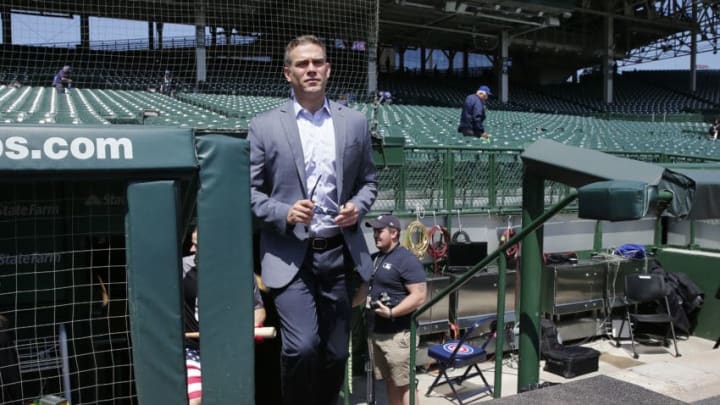The Chicago Cubs were the only National League club to exceed the luxury tax threshold in 2019, meaning they’ll have to pay an additional $8.5 million.
With several glaring needs heading into the offseason, the Chicago Cubs received their final bill for the 2019 season in regards to the luxury tax. Per The Los Angeles Times, Chicago blew past the $206 million park in payroll, clocking in just under the $240 million mark.
What does this mean for the organization and ownership? The Cubs will have to pay a roughly $8.5 million luxury tax this winter. MLB Trade Rumors breaks down the financials and how it all works out.
More from Cubbies Crib
- Cubs starting pitching has been thriving on the North Side
- Make no mistake: the Cubs are very much about power hitters
- Cubs are giving pitcher Javier Assad a deserved shot
- Cubs: It’s time to start thinking about potential September call-ups
- Cubs: P.J. Higgins deserves to be in the lineup on a daily basis
"The Cubs also ran up a tab that came in just shy of the $240MM mark by Cot’s reckoning. They are not a repeat luxury level team and therefore pay the base rate of 20% for the first $20MM and 32% for the next $20MM in salary over the threshold. That would result in a liability of a little under $8.5MM."
Now, had the team advanced to a fifth consecutive postseason or even won the National League Central, we might not be paying as much attention to news like this. But that’s not the case.
Chicago floundered once again late in the season and has left no stone unturned early in the winter, replacing Joe Maddon and shuffling the front office in hopes of getting a fresh perspective on things.
Pair those events with Tom Ricketts’ plainly stated views on the luxury tax and it’s definitely worth examining what this might mean for the Cubs and their offseason plans. Most fans want Gerrit Cole or Stephen Strasburg added to the mix. Personally, I doubt Theo Epstein even brings Nicholas Castellanos back into the mix, despite his second half dominance at the Friendly Confines.
Why? Because Chicago is going to make incremental changes to the roster, in hopes that Ross can help get the most out of a group of players that, in recent years, has failed to live up to the sum of its parts. This less exciting approach to the offseason will be veiled under the guise of extending the competitive window past 2021 and leaving the team’s short-term success very much up in the air.
That’s not to say the Cubs are going to throw in the towel next season. I don’t believe that will be the case. But if Chicago is going to improve on its 84-win performance from 2019, it’s going to come down to this core getting back on track.
That is, whichever members of that group are still reporting to Mesa next spring. With trade speculation already running rampant, it’s very possible the team will rely on trades to improve its long-term outlook, given their payroll situation. One thing is for sure. Ownership has no intentions of spending its way to another ring – so you can put those dreams to rest right now.
